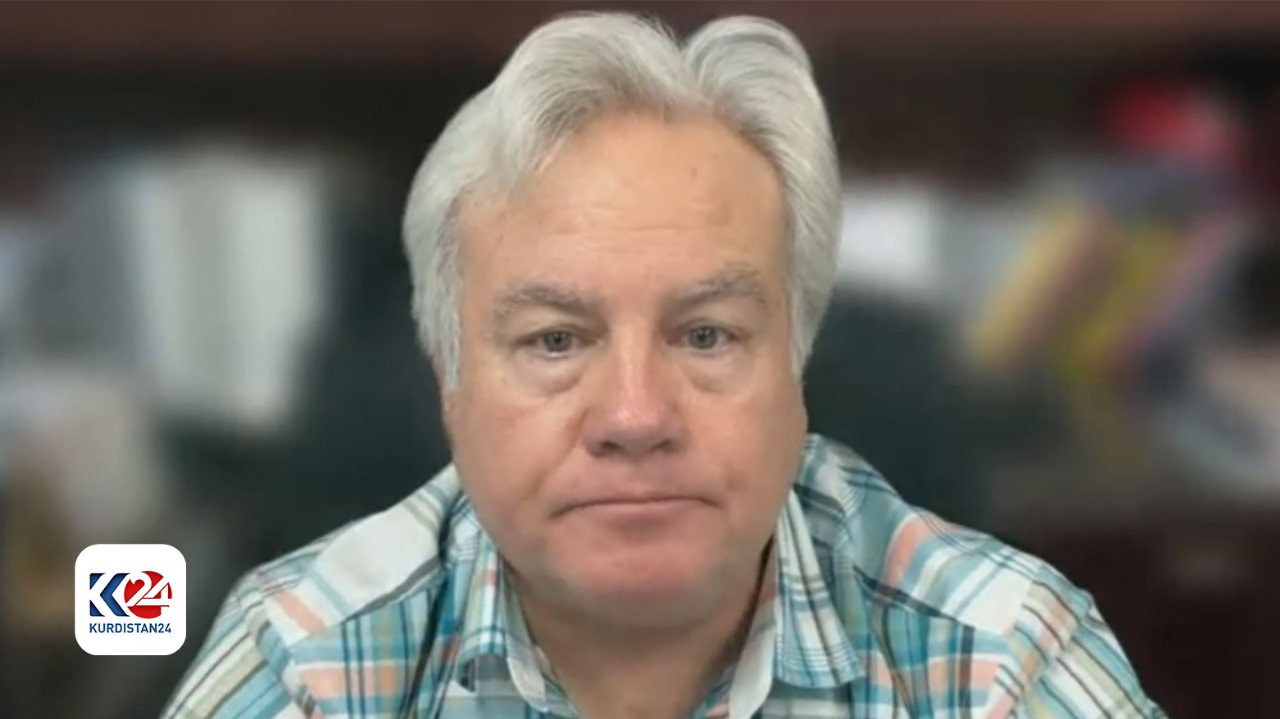U.S. Needs to Do More to Counter Iranian-backed Attacks, says Fair Energy Foundation head
"You'll notice these attacks are maiming US service members and causing traumatic brain injuries," Wallace said.

ERBIL (Kurdistan24) - The President of the U.S.-based Fair Energy Foundation, David Wallace, on Monday held an exclusive interview with Kurdistan24, in which he discussed the recent attacks by Iraqi militias on U.S., Coalition, and Peshmerga bases.
The Fair Energy Foundation markets itself as a free-trade organization seeking to stop energy trade restrictions from organizations like OPEC, claiming such collaboration is “blackmail” against a free-market.
“If we look today, the average militia man starting wage is over 50% more than an average Iraqi across the country,” said Wallace, while adding that the Iraqi Government “restricts the funding from going to Kurdistan.”
The remark echoes an earlier charge by the Kurdistan Regional Government’s (KRG) Prime Minister Masrour Barzani, who posted on X that the militias “use state money and weapons to attack the Kurdistan Region.”
"It's happening across the country especially at Al-Asad Air Base in Al-Anbar Province, and you'll notice these attacks are maiming US service members and causing traumatic brain injuries," Wallace continued.
Read More: US attacks militias in Iraq, retaliating for earlier strikes, including at Erbil Airport
“These governments [Iraq and Iran] who are responsible, need to be held accountable for their actions and imagine if the United States stood by and watched Baghdad come under attack. I'm sure Baghdad would be reaching out to the United States and asking for our assistance in such a scenario,” the Foundation's head added.
Despite Wallace’s complaint, the U.S. has retaliated in some capacity, but the attacks are seen as weak, even as they regularly draw criticism from Baghdad, most notably following the Nov. 22 airstrikes in the Babylon governorate town of Jurf Al-Nasr.
The U.S. strikes killed eight fighters of the Iran-backed Popular Mobilization Forces (PMF), belonging to the Kata’ib Hezbollah faction. That drew condemnation from senior figures of the pro-Iranian Shi’a apparatus, including Nouri al-Maliki, Hadi Al-Amiri, Qais Al-Khazali, and even Prime Minister Mohammed Shia’ al-Sudani through his spokesman.
Nonetheless, the U.S. strikes are viewed in Washington as inadequate,and they have failed to stop the attacks. Wallace’s opinion echoes Republican criticism of the Biden administration that the lack of a decisive response has encouraged the Iran-backed factions to continue their aggression.
Wallace also complained about the injuries sustained by U.S. service members at military installations, saying that “President [Biden] has shown weakness at every step along the way, and it seems as though he just does not care about the American soldier, the American service members who are standing on the front lines.”
The rapidly deteriorating ties between the U.S. and Iraqi militaries were exemplified in a Nov. 5 report indicating that U.S. forces in the anti-ISIS Coalition at Al-Asad Airbase in Anbar province had cut “information exchange channels” with the Iraqi Armed Forces, as the U.S. believed the base’s coordinates and security information were being leaked by insiders. There have been some 115 such attacks since the Iranian-backed militia campaign began on Oct. 17.
On New Year’s Eve, the militias attacked a Peshmerga base. Although it resulted in material damage only, it marked the first such attack on a Kurdish military base that did not host U.S. forces.
The KRG responded to the attack with strong criticism, as the Prime Minister affirmed, "We know well the issues at play here and the outlaws behind them, and have a right to defend our people.”
Read More: ‘We have a right to defend our people,’ says PM Barzani following drone attacks on Peshmerga
Yet while Sudani and his cabinet regularly condemn U.S. strikes on Kata'ib Hezbollah fighters, the same senior Shi’a officials did not collectively condemn the drone strike on the Peshmerga base, although Sudani promised an "investigation."
The attacks on bases in Iraq and Syria hosting the anti-ISIS Coalition is part of an Iranian-sponsored campaign that exploits the war between Israel and Hamas in Gaza, which began on Oct. 7, with Hamas’s bloody cross-border assault into Israel.
That campaign also involves attacks on shipping in the Red Sea by the Iranian-backed Houthis in Yemen, and the U.S. has formed a multinational naval force to counter the Houthi assault.
Read More: US Sec Def Announces Coalition to Defend Shipping Against Houthi Attacks
However, it is unclear just what impact the new force will have. Houthi attacks have continued, and an Iranian warship even passed the Bab el-Mandeb strait, to enter the Red Sea. CNBC reported on Tuesday that the “situation remains tense in the critical waterway” with oil prices “volatile.”
Editing by Laurie Mylroie